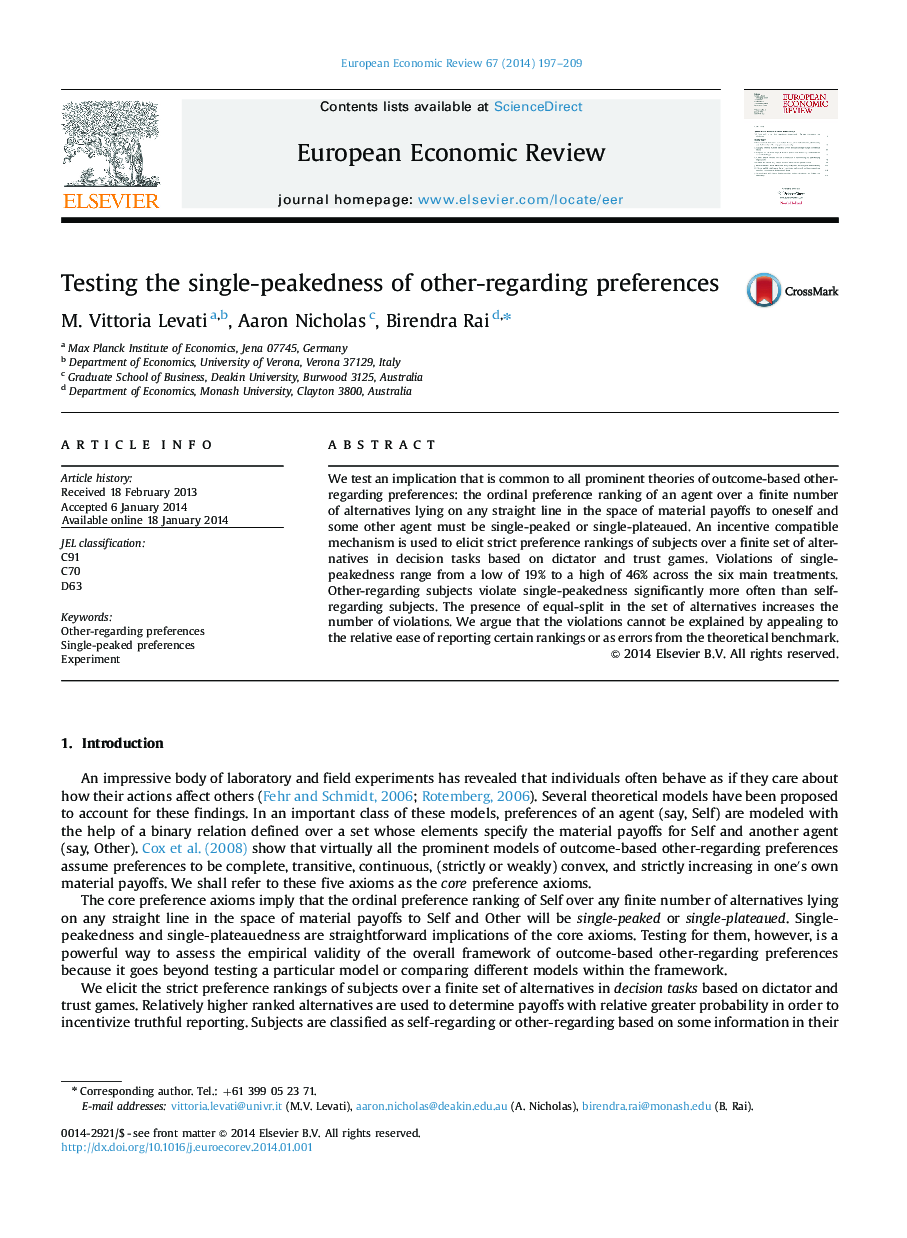| Article ID | Journal | Published Year | Pages | File Type |
|---|---|---|---|---|
| 5066807 | European Economic Review | 2014 | 13 Pages |
â¢We highlight that outcome-based other-regarding preferences are single-peaked and test this implication by eliciting preference rankings.â¢Violations of single-peakedness vary from 19% to 46% in decision tasks based on dictator and trust games.â¢Positively and/or negatively other-regarding subjects are significantly more likely to violate single-peakedness than are self-regarding subjects.â¢The presence of equal-split in the set of alternatives increases violations of single-peakedness.â¢It seems difficult to justify non-single-peaked rankings as errors relative to the bench-mark of single-peaked rankings.
We test an implication that is common to all prominent theories of outcome-based other-regarding preferences: the ordinal preference ranking of an agent over a finite number of alternatives lying on any straight line in the space of material payoffs to oneself and some other agent must be single-peaked or single-plateaued. An incentive compatible mechanism is used to elicit strict preference rankings of subjects over a finite set of alternatives in decision tasks based on dictator and trust games. Violations of single-peakedness range from a low of 19% to a high of 46% across the six main treatments. Other-regarding subjects violate single-peakedness significantly more often than self-regarding subjects. The presence of equal-split in the set of alternatives increases the number of violations. We argue that the violations cannot be explained by appealing to the relative ease of reporting certain rankings or as errors from the theoretical benchmark.
